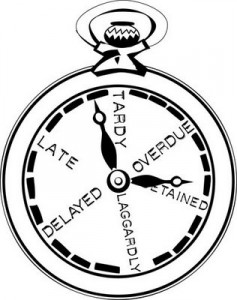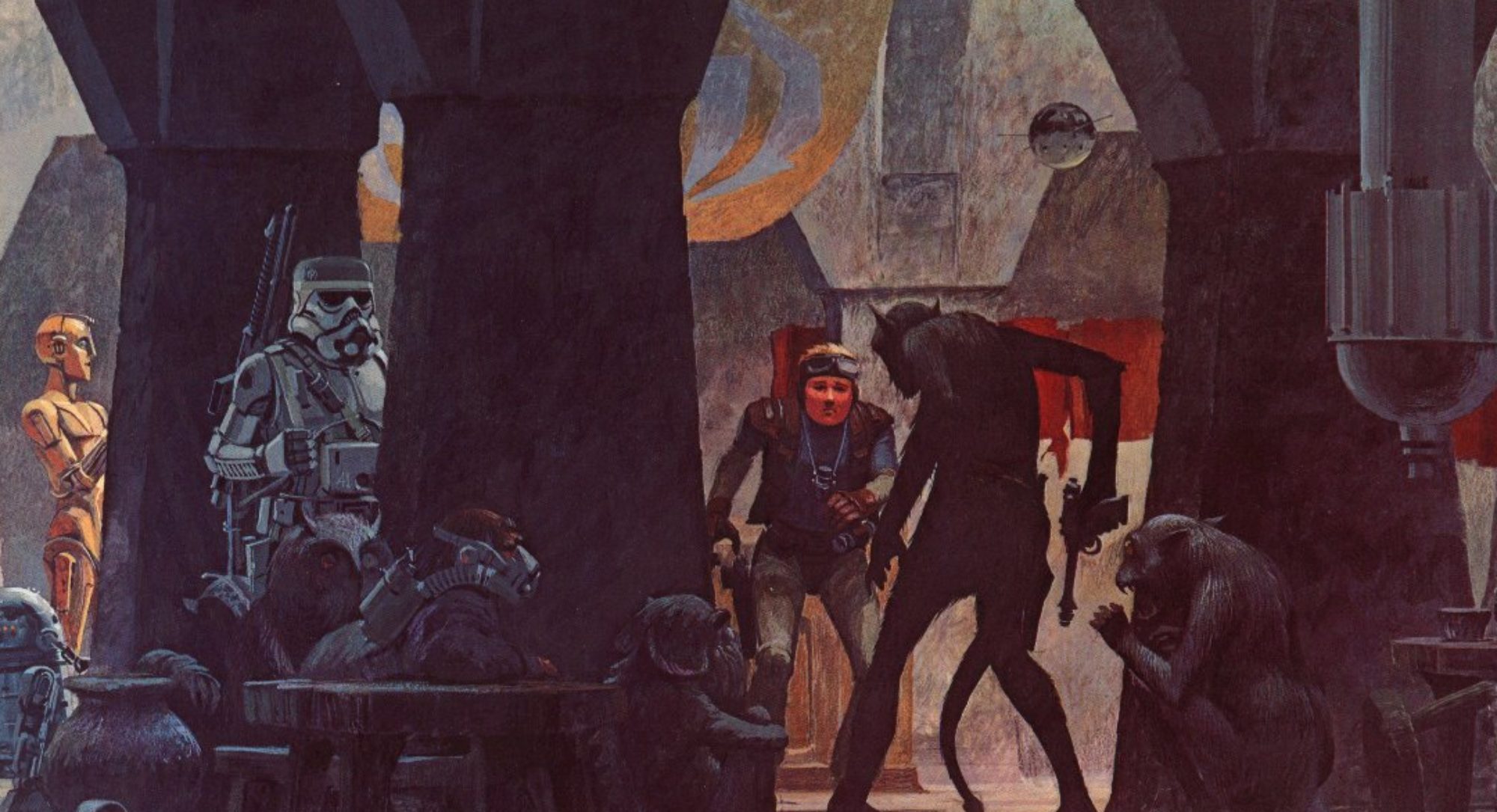 Confession-is-good-for-the-soul time. My biggest professional failing is lateness. I always overestimate how quickly I can get things done, and I’m always doing more than one thing, so once a project falls behind schedule, I’m playing a constant game of catch-up… and the lateness causes a cascade into everything else I’m doing, causing them to be be delayed as well. Next thing I know, I’m left feeling like I’m simultaneously juggling five or six balls while also desperately treading water trying to avoid drowning.
Confession-is-good-for-the-soul time. My biggest professional failing is lateness. I always overestimate how quickly I can get things done, and I’m always doing more than one thing, so once a project falls behind schedule, I’m playing a constant game of catch-up… and the lateness causes a cascade into everything else I’m doing, causing them to be be delayed as well. Next thing I know, I’m left feeling like I’m simultaneously juggling five or six balls while also desperately treading water trying to avoid drowning.
(Yeah, I know — my stress-metaphors don’t fuck around.)
The side effect of the cascade is that I’m constantly working with several projects which are all behind schedule — which makes working on each one that more difficult, due to the peculiarities of how my brain works. Logically, I know that if project A is the latest, I should knock that out until it’s done, and move on to project B, which is less late, then on to C, which is barely late. Somewhere in the misfiring neurons of my stress-addled mind, however, if I try to concentrate on A, then thoughts of B & C intrude, nagging at me almost to the point of panic. “We’re late,” they cry. “You need to get this done!” And so my work on A is like crawling over broken glass (see? I wasn’t kidding about the stress-metaphors). I often end up trying to bounce between projects to shut down the nagging, which of course doesn’t really do anything but slow down the completion process.
This is one of those things where working for yourself puts you at a disadvantage. I’m pretty sure if I had somebody telling me “DO PROJECT A.” I could concentrate purely on that — and then they could point me at the next task. Adamant, however, is a one-man shop, plus freelancers, co-developers, etc. Which means that everything bottlenecks through me, and I’m the guy standing over myself, giving the orders.
The result is 7-day work weeks, filled with 12-16 hour days. I can’t allow myself to unclench, to give myself any down-time, as long as there are projects which need work… and there are always projects which need work. Lack of down-time means that my immune system is stress-weakened, which often results in my getting slammed by whatever bug is going around, which has the added joy of making me feel even worse — and making my work even slower and the projects even later.
So it’s a failure of which I am exceedingly aware.
Folks ping me all the time, though — via social media, email, forums, etc. Fans, for the most part. Enthusiastic. “When is X coming out? Is it out yet? When? How about now? I’m dying over here! Now? Come on!”
On the one hand, I know this is a positive thing. People look forward to the stuff I release. They want it. This is, of course, far better than the alternative — that they don’t care or don’t even notice.
On the other hand, though? A gut-twisting knife, every time. Seriously — actual physical discomfort. A stark reminder of my failing. Massive injections of additional pressure and stress …and I know it’s not intended to be that. It’s genuine interest from genuine fans, and I absolutely hate that my brain has managed to turn that into a negative thing.
So I end up using my lunch break to write out a blog post like this, in the hopes that putting it down in black-and-white will force my mind to stop doing that.
How about you folks? How do you keep from falling behind (or whatever your own personal failing may be)? How do you hack your own brain to stop responding in ways that are detrimental to your work?
 Today is the 150th anniversary of Quantrill’s Raid, when pro-confederate raiders from Missouri burned Lawrence KS & massacred 164 men & boys. To this day, there are memorial stones marking where men & boys were gunned down. One is a block from my house (we live in the Old West Lawrence neighborhood, which was pretty much the entire town back then).
Today is the 150th anniversary of Quantrill’s Raid, when pro-confederate raiders from Missouri burned Lawrence KS & massacred 164 men & boys. To this day, there are memorial stones marking where men & boys were gunned down. One is a block from my house (we live in the Old West Lawrence neighborhood, which was pretty much the entire town back then).



